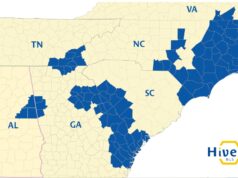CONSTRUCTION EMPLOYMENT DECLINES IN 26 STATES AND D.C. BETWEEN JUNE 2010 & 2011, AS OFFICIALS URGE CONGRESS TO AVOID HALTING $2.5 BILLION IN AIRPORT PROJECTS
Texas and North Dakota Led Yearly Pickup; Georgia and New Mexico Experienced the Worst Job Losses; Michigan and North Dakota Had the Largest Monthly Gains; Delaware and Washington Had the Worst Losses
WASHINGTON, D.C. – July 25, 2011 – (RealEstateRama) — Construction employment declined in 26 states and D.C. between June 2010 and 2011 and dropped in 22 states and D.C. between May and June, according to an analysis by the Associated General Contractors of America of state employment data released by the Labor Department. The construction industry continues to suffer from a difficult combination of weak private sector demand and declining public sector investments in construction.
“There is no getting around the fact this industry is stuck in a multi-year slump,” said Ken Simonson, the association’s chief economist. “The private sector isn’t growing fast enough to boost demand for new structures while public construction budget cuts appear to be accelerating.”
Of the 27 states with decreases over the year, the largest percentage drop took place in New Mexico (-10.2 percent, -4,400 jobs); followed by Nevada (-8.6 percent, -5,100 jobs); Minnesota (-8.1 percent, -6,900 jobs); Colorado (-7.8 percent, -8,900 jobs) and Georgia (-7.1 percent, -10,600 jobs). Georgia lost the largest number of jobs; followed by Florida (-9,400 jobs, -2.7 percent); Colorado; Minnesota and North Carolina (-6,800 jobs, -3.8 percent).
Simonson noted 22 states and the District of Columbia added jobs during the past 12 months, while construction employment was unchanged in Nebraska. Texas (26,000 jobs, 4.6 percent) added the most jobs, followed by Michigan (10,900 jobs, 9.2 percent); Illinois (8,900 jobs, 4.5 percent); California (7,800 jobs, 1.4 percent) and Ohio (4,800 jobs, 2.9 percent). The largest percentage gains occurred in North Dakota (17.3 percent, 3,600 jobs); Michigan; Oklahoma (3,100 jobs, 4.6 percent); Texas and Illinois.
Of the 24 locations that lost jobs between May and June, the largest percentage losses occurred in Delaware (-4.1 percent, -800 jobs); followed by New Mexico (-4.0 percent, -1,600 jobs); Idaho (-3.7 percent, -1,100 jobs); Kansas (-2.9 percent, -1,600 jobs) and Connecticut (-2.8 percent, -1,400 jobs). The largest number of construction job losses over the month was in Washington (-2,900 jobs, -2.1 percent), followed by Maryland (-2,800 jobs, -2.0 percent); Missouri (-2,300 jobs, -2.1 percent); Minnesota and Virginia (-2,100 jobs, -1.1 percent).
Construction employment improved in 25 states during the past month and was unchanged in Alaska, Alabama and Oklahoma. North Dakota had the largest percentage rise (7.5 percent, 1,700 jobs); followed by Vermont (5.5 percent, 700 jobs); Rhode Island (4.8 percent, 700 jobs); South Dakota (3.9 percent, 800 jobs) and Michigan (3.1 percent, 3,900 jobs). Michigan added the largest number of jobs; followed by Ohio (2,800 jobs, 1.7 percent); New York (2,200 jobs, 0.7 percent) and Georgia (2,200 jobs, 1.6 percent) and Arizona (1,800 jobs, 1.6 percent).
Association officials urged Congress and the Obama Administration to reconsider recent cuts to a range of federal construction programs for federal buildings, clean water systems and flood protection. They also called on Congress to enact new, or extend existing, federal aviation legislation to ensure $2.5 billion worth of airport construction projects aren’t brought to a halt this weekend.
“The last thing this industry needs is a halt to an entire category of construction activity,” said Stephen Sandherr, the association’s chief executive officer. “Given the state of the construction industry, the sad fact is runway and terminal projects are the only thing keeping many construction firms solvent right now.”
View the state employment data by rank and by alphabetical order. View a map of state construction trends.

















